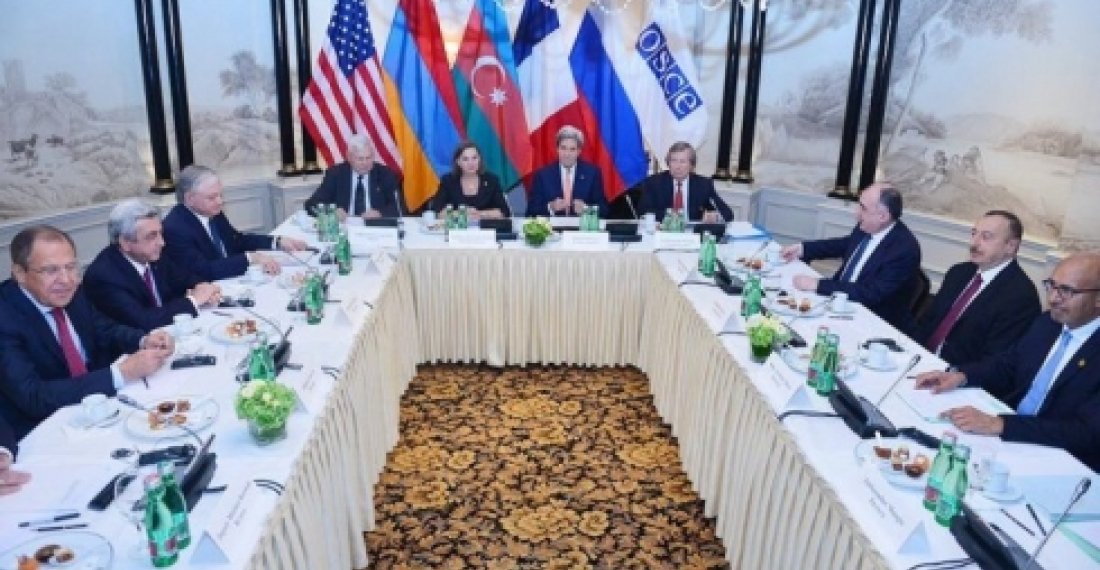The Minister of Foreign Affairs of the Russian Federation Sergey Lavrov, Secretary of State of the United States of America John Kerry, and State Secretary for European Affairs of France Harlem Desir, representing the co-chair countries of the OSCE Minsk Group, met today with President of Armenia Serzh Sargsyan and President of Azerbaijan Ilham Aliyev to advance a peaceful resolution of the Nagorno-Karabakh conflict.
They reiterated that there can be no military solution to the conflict. The Co-Chairs insisted on the importance of respecting the 1994 and 1995 ceasefire agreements.
The Presidents reiterated their commitment to the ceasefire and the peaceful settlement of the conflict. To reduce the risk of further violence, they agreed to finalize in the shortest possible time an OSCE investigative mechanism. The Presidents also agreed to the expansion of the existing Office of the Personal Representative of the OSCE Chairperson in Office. Finally, they agreed to continue the exchange of data on missing persons under the auspices of the International Committee of the Red Cross (ICRC) to which the Presidents committed during the Paris summit of October 2014.
The Presidents agreed on a next round of talks, to be held in June at a place to be mutually agreed, with an aim to resuming negotiations on a comprehensive settlement.
SOURCE: osce.org
PHOTO: ThePresidents of Armenia and Azerbaijan with the representatives of France, Russia and the United States at their meeting in Vienna on 16 May 2016.







